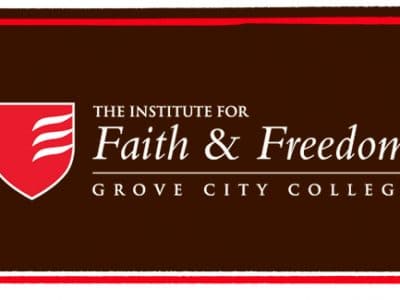With the arrival of a national holiday, concomitant weekend getaways, and the ceaseless pounding of sensationalistic news headlines, it sadly becomes far too easy to miss the passing of an age. And, in fact, that has just happened when at the age of 88 Shelby Foote passed away in a Memphis hospital with little fanfare or general notice.
The “greatest generation” of which Foote was a part has of course been celebrated and mourned as its numbers inevitably dwindle, but though the generation generally has been heralded, Foote belonged to a more particular group that tragically has not yet been adequately recognized or honored. Given time, literature lovers and historians will eventually note that Foote was the last lion of a group of American authors and poets whose talents equaled or surpassed any collection of writers that America has ever produced.
Just as it defies explanation how a remote portion of the globe would find in 1776 one of the greatest collections of political geniuses the world has seen, it could not have been predicted that out of the poorest region of the United States a group of writers living through World War I, the Great Depression, and World War II, would emerge out of the impoverished South, to produce a collection of literary masterpieces unparalleled in American letters. William Faulkner, Walker Percy, Allan Tate, John Crowe Ransom, Caroline Gordon, Donald Davidson, Andrew Lytle, Flannery O’Connor, Robert Penn Warren, and Shelby Foote did not write as one voice, but they did write from one region. Though thus far, this era’s Midwestern writers or the more “placeless” individual genius of authors such as F. Scott Fitzgerald, Ernest Hemingway, or T.S. Eliot have garnered the most attention, increasingly and predictably the volume and quality of material produced from the identifiably Southern authors should guarantee their eventual preeminence. Though all of the authors mentioned witnessed the international strife of world conflicts and economic collapse, what generated the distinctive Southern voice was their shared experience of growing up among people for whom the Civil War was an ever-present, haunting reality rather than a more remote incident already relegated to history textbooks. This fact is what makes Shelby Foote’s passing particularly poignant, for Foote turned out to be this historical event’s greatest chronicler by authoring in three volumes The Civil War: A Narrative, the work that should serve as the definitive account of America’s definitive conflict.
Besides an obvious call to read Foote’s magnum opus and to appreciate and explore the writings produced by this tremendous group of Southern authors, Foote’s death, or more correctly his life, should serve as a lesson on how to live. As an accomplished novelist and historian, Foote was constantly barraged with questions on how a person should go about learning to write. The questioners’ assumptions that he would answer with the name of some college course or instruction manual were always rebuffed by his far more direct yet subtle direction to read great authors (Dickens, Keats, and Proust were frequent recommendations). In that vein, it is beneficial to “read” Foote’s great life to learn ways to improve our own.
There seem to be three great lessons to learn from Foote; reading great literature can be considered the first. Second, Foote exemplified that something worth doing is worth doing right. As an “up and coming” novelist, Foote on almost a whim agreed to write a brief one volume history of the Civil War. However, Foote quickly realized that rehashing a simple summary of the war held little value or interest for him and he told his publisher that it would require three long volumes to tell the story correctly. After a week of consideration, the publishers agreed. Twenty years and a million and a half words later, Foote the novelist had become perhaps his generation’s greatest historian and had completed the magisterial work for which he will always be known. Finally, Foote’s life was enriched by a remarkable friendship. Walker Percy is perhaps an even more celebrated writer than Foote and more importantly Foote’s friend from the time they met in 1930 to Percy’s death in 1990. In an age now preoccupied with homosexuality, the value, importance, and even possibility of deep male friendship and love is tragically in danger of being lost. Thankfully, the letters of these two life-long friends have been collected and published, reminding all of life’s true pleasures and blessings.
Foote said of Percy at his funeral that his subject like Foote’s own was “the human heart in conflict with itself.” May Foote’s heart now rest in peace, for his was a life well-lived (read, written, and shared).



